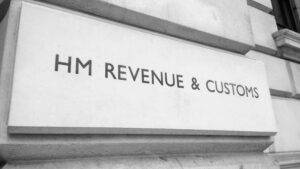Navigating the intricate web of UK tax rules can be daunting, particularly for foreign businesses trying to establish a foothold in the British market. The UK tax system, while robust, presents several complexities that, if not addressed appropriately, can lead to significant fines
With international tax planning becoming ever more critical, let’s delve into why the UK tax rules can be a headache for foreign businesses.
1. Double Taxation Dilemmas
One of the primary concerns for foreign businesses operating in the UK is the potential for double taxation. This occurs when the same income is taxed in two different jurisdictions. While the UK has double taxation treaties with numerous countries to mitigate this, understanding and leveraging these treaties requires meticulous international tax planning. Without this, businesses can find themselves paying more tax than necessary.
2. Complex VAT Regulations
Value Added Tax (VAT) in the UK is notorious for its intricacies. Foreign businesses often grapple with understanding when VAT applies, how it’s calculated, and the myriad exceptions and rules associated with it. These VAT rules can be particularly perplexing for e-commerce businesses and those involved in the digital economy.
3. Digital Services Tax
Introduced in April 2020, the Digital Services Tax (DST) is levied on the revenues of search engines, social media platforms, and online marketplaces. While aimed at tech giants, its implementation can also impact smaller foreign businesses with a digital presence in the UK, adding another layer of taxation to consider in their international tax planning.
4. Transfer Pricing Rules
Transfer pricing is the prices charged for goods, services, or royalties between companies in different tax jurisdictions. The UK has stringent transfer pricing rules to ensure businesses don’t manipulate prices to shift profits out of the country and reduce their tax liability. Foreign companies must ensure their pricing structures align with the ‘arm’s length principle’ and maintain proper documentation to justify their transfer pricing strategies.
5. Changing Landscape Post-Brexit
The UK’s exit from the European Union (EU) has added another layer of complexity to its tax landscape. The end of certain EU directives and the emergence of new trade deals have implications for withholding taxes, customs duties, and other tax-related matters. Foreign businesses, particularly those with strong ties to EU member states, must recalibrate their international tax planning strategies to accommodate these changes.
6. Employee Taxation and NICs
Foreign businesses employing staff in the UK must navigate the complexities of employee taxation and National Insurance Contributions (NICs). Understanding the nuances of PAYE (Pay As You Earn) systems, tax codes, and the implications of employing both UK and non-UK residents can be a significant administrative challenge.
7. Property-Related Taxes
Foreign businesses must be aware of property-related taxes when purchasing office space or investing in UK real estate. From Stamp Duty Land Tax (SDLT) to the Annual Tax on Enveloped Dwellings (ATED), property taxation in the UK is a multifaceted area that requires careful consideration and planning.
How does business tax work UK?
Business tax in the UK is a multifaceted system governed by various rules and regulations depending on the type and size of the business. Here’s a basic overview of how business tax works in the UK:
Corporation Tax:
All limited companies in the UK, foreign companies with a UK branch or office, and unincorporated associations (like clubs and co-operatives) are subject to Corporation Tax on their profits.
Businesses must report their taxable profits, calculate what they owe, and then pay Corporation Tax without receiving a bill.
The current rate of Corporation Tax is set at 19%, but this may change based on government fiscal policies.
Certain reliefs and allowances can reduce the Corporation Tax bill.
VAT (Value Added Tax):
Businesses that provide taxable goods or services with a turnover exceeding the VAT threshold (£85,000 as of the last update) must register for VAT.
Once registered, the business charges VAT on its sales and can reclaim VAT paid on business expenses.
The standard VAT rate is 20%, but reduced rates or exemptions might apply to certain goods and services.
Business Rates:
If a business operates from office premises, it may need to pay business rates, a tax on property used for business purposes.
Local councils send bills in February or March each year, and rates are calculated based on the property’s ‘rateable value’.
Some businesses might qualify for relief on their business rates, such as small business rate relief.
National Insurance:
Employers must pay National Insurance Contributions (NICs) on employees’ wages.
The amount is determined by how much the employee earns and their specific class of National Insurance.
NICs contribute to state benefits, including pensions.
Income Tax:
Sole traders and partnerships do not pay Corporation Tax. Instead, they pay Income Tax on their business profits through Self Assessment.
Individuals must complete a self-assessment tax return annually detailing their income and expenses.
The tax rate varies depending on the income bracket.
Other Taxes:
Depending on the nature of the business, other taxes might apply. For instance, companies in the alcohol, gambling, or tobacco industries might have specific tax obligations.
There are also environmental taxes for businesses that produce waste or pollutants.
Record Keeping:
All businesses must keep accurate records of their income and expenses to calculate and substantiate their tax obligations.
Digital record-keeping is becoming the standard, especially with the UK’s Making Tax Digital initiative, which mandates digital tools for VAT reporting for businesses above the VAT threshold.
Tax Reliefs and Allowances:
Various reliefs and allowances can reduce a business’s tax bill. This includes the Annual Investment Allowance (AIA) for capital expenditures, Research and development (R&D) relief for innovation, and Creative Industry Tax Reliefs for specific sectors like film and TV.
Conclusion
With its thriving economy and business-friendly environment, the UK remains an attractive destination for foreign businesses. However, its complex tax system can pose challenges requiring careful international tax planning. From understanding VAT and transfer pricing rules to navigating the post-Brexit tax landscape, foreign businesses must be well-prepared.
Engaging with tax professionals familiar with UK regulations can be invaluable for foreign businesses aiming to mitigate risks and optimize their tax position. With the right guidance and a comprehensive understanding of the UK’s tax landscape, foreign businesses can transform potential headaches into opportunities for growth and success.
Read more:
How Do UK Tax Rules Cause Foreign Businesses a Headache?
















